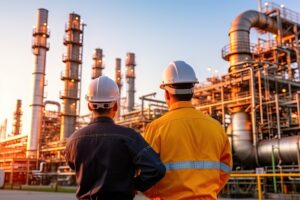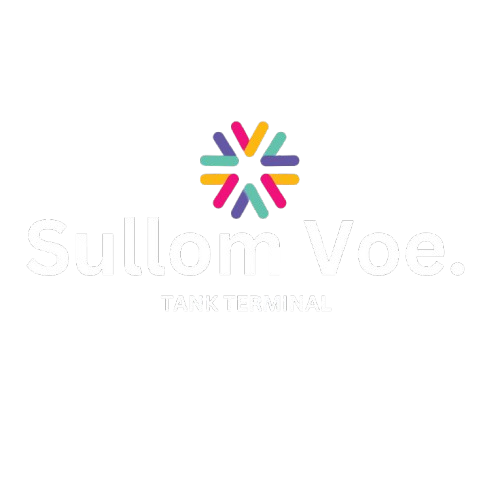Tank Farms Support Oil and Gas: Storage, Compliance & Efficiency

Tank farms support oil and gas logistics by ensuring the safe storage and management of petroleum products. Their role in the oil and gas sector is crucial for meeting energy demands, complying with regulations, and facilitating smooth global distribution.
In the complex landscape of global energy, tank farms support oil and gas operations by offering secure storage, logistical flow, and regulatory compliance. These vast storage facilities play a vital role in ensuring a steady fuel supply from production to consumption. For companies like Sullom Voe Terminals, tank farms are not just infrastructure—they’re the backbone of efficient oil and gas delivery.
The Role of Tank Farms in Oil and Gas
A tank farm is a facility where large quantities of petroleum products are stored before transportation or distribution. These storage hubs often consist of multiple tanks, pipelines, and safety systems that manage crude oil, refined products, or gas.
Tank farms are positioned strategically near ports, refineries, and major transportation hubs to reduce transit time and cost. Companies across the energy supply chain—from upstream to downstream—rely on them.
Why Tank Farms Are Essential to the Oil and Gas Industry
-
Efficient Crude and Fuel Storage
Tank farms support oil and gas operations by storing products like crude oil, gasoline, diesel, jet fuel, and LNG. This not only helps manage supply and demand but also prevents market disruptions.
For example, during peak seasons or geopolitical tensions, having stored reserves provides operational resilience.
-
Logistical Hub for Global Distribution
Tank farms act as logistics centers where products are transferred between ships, pipelines, trucks, and trains. This strategic function streamlines fuel delivery both domestically and internationally.
→ See how we optimize logistics at our Houston port branch.
-
Regulatory Compliance and Safety
Modern tank farms are equipped with monitoring systems, spill control measures, and emission-reducing technologies. They adhere to global and local regulations, such as:
-
EPA Clean Air and Water Acts (USA)
-
IMO Marine Fuel Sulfur Limits
-
EU ETS Carbon Regulations
Compliance ensures environmental safety while avoiding costly penalties.
How Sullom Voe Terminals Sets a Higher Standard
At Sullom Voe Terminals, we’ve developed tank farm infrastructure that meets international benchmarks. With terminals in the UK and Houston, our facilities feature:
-
High-capacity crude oil tanks
-
Integrated blending systems
-
24/7 security and temperature monitoring
-
Access to deep-water ports
Want to lease a secure tank? Contact us today.
Key Benefits of Tank Farms for the Energy Sector
| Feature | Benefit |
|---|---|
| Large-scale storage | Stabilizes supply and pricing |
| Strategic locations | Lowers transportation costs |
| Advanced tech | Improves safety and monitoring |
| Leasing options | Reduces capital investment |
Tank Farms and Global Energy Resilience
As demand for energy rises, so does the need for storage infrastructure. Tank farms provide:
-
Buffer capacity for emergencies
-
Scalability for renewables and LNG
-
Support for cleaner energy transitions through fuel blending
Expert Insight
“A well-managed tank farm is the unsung hero of every successful oil and gas operation.”
— Mark Jensen, Oil Logistics Consultant
Internal and Outbound Links
-
✅ Internal link: Sullom Voe Terminals Home
-
✅ Internal link: Contact to lease a tank
-
✅ Internal link: Houston Port Branch Info
Internal Link: Explore Our Tank Farm Leasing Options
Outbound Link: EPA Tank Regulations

2 replies on “Tank Farms Support Industry: Essential Role in Oil & Gas”
I think this web site contains very great written content blog posts.
Can I simply say what a reduction to seek out someone who really is aware of what theyre speaking about on the internet. You positively know how to deliver a problem to light and make it important. More people need to learn this and perceive this side of the story. I cant consider youre not more popular because you undoubtedly have the gift.